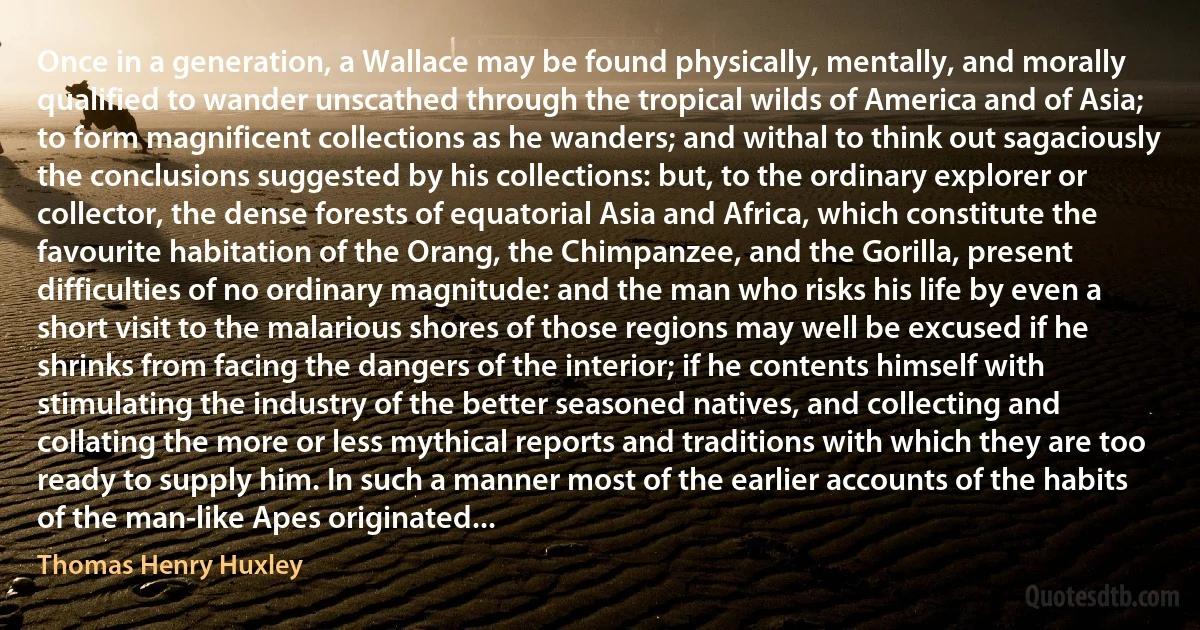Regions Quotes - page 11
Sir, I believe that if the House adopts this Motion...[t]hey will say, "Here is a Power that has been formerly great in arms, whose armies have gained victories in remote regions, whose fleets have floated triumphantly over every ocean... this people are now overcome by the love of gain. They fear the expenses and the efforts which may be necessary to protect their countrymen, and they abandon a large community of British subjects at the extreme end of the globe to a set of barbarians-a set of kidnapping, murdering, poisoning barbarians." I say foreign nations would feel that England has descended from that high station which hitherto she has occupied, at the beck of some of the basest, the meanest, and the most degraded beings in the civilized world.

Henry Temple, 3rd Viscount Palmerston
Here, again, a case of what Max Muller called "special pleading”: now Witzel claims not only to be able to identify "non-Indoaryan” loanwords in Vedic, he can also identify the exact regions from which these "loanwords” were borrowed: we have Punjab loan words, U.P. loan words, Bactria-Margiana loan words...! Witzel knows, with scientific exactitude that "loanwords”, from imaginary "substrate languages”, which are found in both Vedic and Iranian are definitely from Central Asia, and not from the Punjab or U.P., and, equally, that "loanwords” found only in Vedic are from the Punjab or U.P. – not, of course, because his theory suggests these locations, but because he has found actual inscriptions from pre-RV eras, in one or more non-Indo-Iranian languages, from the respective areas, where these words are actually recorded!

Shrikant Talageri
[T]he Party must have a much wider appeal. We have thought of the Party a bit narrowly, in terms of economic and industrial policy, as if every problem could be solved by setting up a quango. We have got to think of the appeal to women, to blacks, to the wider peace movement, the ecological movement and the regions. We have got to think out the whole devolution argument... You and I come from old-fashioned radical liberal families, and libertarianism is what it is about.

Tony Benn
Then did I feel as one who, much perplext,
Led by strange legends and the light of stars
Over long regions of the midnight sand
Beyond the red tract of the Pyramids,
Is suddenly drawn to look upon the sky
From sense of unfamiliar light, and sees
Reveal'd against the constellated cope
The great cross of the South.

Robert Bulwer-Lytton, 1st Earl of Lytton
The theorem tells you that maybe there must be something happening faster than light, although it pains me even to say that much. The theorem certainly implies that Einstein's concept of space and time, neatly divided up into separate regions by light velocity, is not tenable. But then, to say that there's something going faster than light is to say more than I know.

John Stewart Bell
The lust of lucre has done much to make the minds of men so barbarous. But something also is due to the nature of the climate and the situation of these regions. For, as these places are subjected to burning southern sun, which casts a languor into the veins and as it were, destroys the vigor of virtue, and as they are far removed from the habits of religion and the vigilance of the State, and in a measure even from civil society, it easily comes to pass that those who have not already come there with evil morals soon begin to be corrupted, and then, when all bonds of right and duty are broken, they fall away into all hateful vices. Nor in this do they take any pity on the weakness of sex or age, so that we are ashamed to mention the crimes and outrages they commit in seeking out and selling women and children, wherein it may be truly said that they have surpassed the worst examples of pagan iniquity.

Pope Pius X
I endeavoured to sketch out (and it was, I believe, the first systematic attempt to accomplish such a task) the laws which govern the extinction of species, with a view of showing that the slow, but ceaseless variations, now in progress in physical geography, together with the migration of plants and animals into new regions, must, in the course of ages, give rise to the occasional loss of some of them, and eventually cause an entire fauna and flora to die out; also, that we must infer, from geological data, that the places thus left vacant from time to time, are filled up without delay by new forms, adapted to new conditions, sometimes by immigration from adjoining provinces, sometimes by new creations. Among the many causes of extinction enumerated by me, were the power of hostile species, diminution of food, mutations in climate, the conversion of land into sea, and of sea into land, &c.

Charles Lyell
I have warred with a World which vanquished me only
When the meteor of conquest allured me too far;
I have coped with the nations which dread me thus lonely,
The last single Captive to millions in war.
Farewell to thee, France!-but when Liberty rallies
Once more in thy regions, remember me then,-
The Violet still grows in the depth of thy valleys;
Though withered, thy tear will unfold it again-
Yet, yet, I may baffle the hosts that surround us,
And yet may thy heart leap awake to my voice-
There are links which must break in the chain that has bound us,
Then turn thee and call on the Chief of thy choice!

Lord Byron
Think you he nought but prison-walls did see,
Till, so unwilling, thou unturn'dst the key?
Ah, no! far happier, nobler was his fate!
In Spenser's halls he strayed, and bowers fair,
Culling enchanted flowers; and he flew
With daring Milton through the fields of air:
To regions of his own his genius true
Took happy flights. Who shall his fame impair
When thou art dead, and all thy wretched crew?

John Keats
It has been... hard... to make sense of the gathering forces that will fundamentally alter the terms of everyday life in ...society. Even after the terrorist attacks of September 11, 2001, that collapsed the twin towers of the World Trade Center and sliced through the Pentagon, [...] [we are] still sleepwalking into [an uncertain] [...] future. We have walked out of our burning house, and we are now headed off the edge of a cliff. Beyond that cliff is an abyss of economic and political disorder on a scale that no one has ever seen before. [...] The national government will prove to be so impotent and ineffective in managing the enormous vicissitudes we face that the United States may not survive as a nation in any meaningful sense but... will devolve into a set of autonomous regions.

James Howard Kunstler


